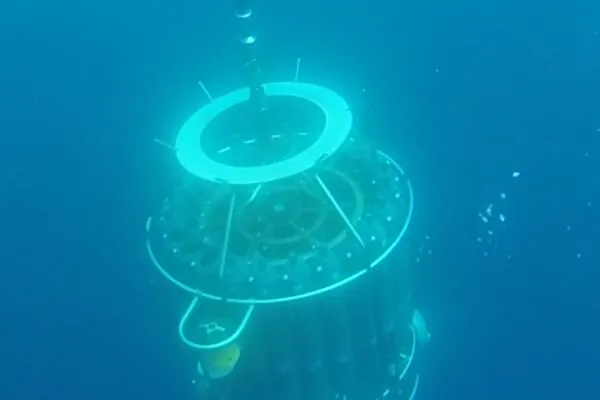
Alarming Discovery: Ocean Warming Fuels Growth of Deep Sea Phytoplankton, Endangering Marine Ecosystems!
2024-09-27
Author: Yu
Groundbreaking Study Uncovers Warming Seas' Effects on Phytoplankton
A groundbreaking study from the University of Exeter has revealed that deep sea phytoplankton, often referred to as the Earth's 'invisible forest,' are flourishing in the wake of rising ocean temperatures. While phytoplankton are critical components of marine ecosystems, their rapid growth in deeper waters could spell disaster for the delicate balance of marine life and biodiversity.
Cascading Effects on Marine Life
Dr. Bob Brewin, co-author of the study, warns, 'Changes at the base of the food web can have cascading effects on marine life, from tiny zooplankton to large fish and marine mammals,' emphasizing that phytoplankton's future has profound implications not only for biodiversity but also for our ongoing battle against climate change.
The Role of Phytoplankton in Ecosystems
Phytoplankton are essential in our planet's ecosystem, contributing to roughly 50% of the Earth's primary productivity through photosynthesis. This means they play a vital role in converting carbon dioxide into oxygen, effectively acting as the planet's lungs.
A Concerning Divergence
The research, published in the prestigious journal Nature Climate Change, investigated the behavior of phytoplankton at both the ocean's surface and beneath it, aiming to shed light on the impact of climate alterations on these vital organisms. The findings indicate a concerning divergence; while deep-living phytoplankton that thrive in low-light conditions are increasing in biomass due to the warming ocean, surface phytoplankton are experiencing a decline in chlorophyll, the pigment essential for photosynthesis.
Data collected over 33 years
Data collected over 33 years from the Bermuda Atlantic Time-series Study (BATS) reveals that as the ocean warms, the 'surface mixed-layer' of turbulent water where surface phytoplankton live has become shallower. This phenomenon raises further alarm about the adaptability and survival of surface phytoplankton in an ever-changing climate.
Need for Improved Monitoring Techniques
Dr. Johannes Viljoen, another key researcher, brings attention to the limitations of current monitoring techniques, stating, 'We typically rely on satellite observations to monitor phytoplankton, but the subsurface is hidden from satellite view. Our study underscores the urgent need for improved global monitoring of phytoplankton below what satellites can see.'
A Call to Action
This research serves as a clarion call for scientists, policymakers, and environmentalists alike. With ocean temperatures continuing to climb, the future of marine ecosystems hangs in the balance. Improved monitoring and a deeper understanding of phytoplankton dynamics are crucial for safeguarding the health of our oceans and mitigating the impacts of climate change on marine life.
Conclusion: What's at Stake for Our Oceans?
What's at stake for our oceans? Stay tuned to find out how these trends could reshape our underwater world!





 Brasil (PT)
Brasil (PT)
 Canada (EN)
Canada (EN)
 Chile (ES)
Chile (ES)
 España (ES)
España (ES)
 France (FR)
France (FR)
 Hong Kong (EN)
Hong Kong (EN)
 Italia (IT)
Italia (IT)
 日本 (JA)
日本 (JA)
 Magyarország (HU)
Magyarország (HU)
 Norge (NO)
Norge (NO)
 Polska (PL)
Polska (PL)
 Schweiz (DE)
Schweiz (DE)
 Singapore (EN)
Singapore (EN)
 Sverige (SV)
Sverige (SV)
 Suomi (FI)
Suomi (FI)
 Türkiye (TR)
Türkiye (TR)